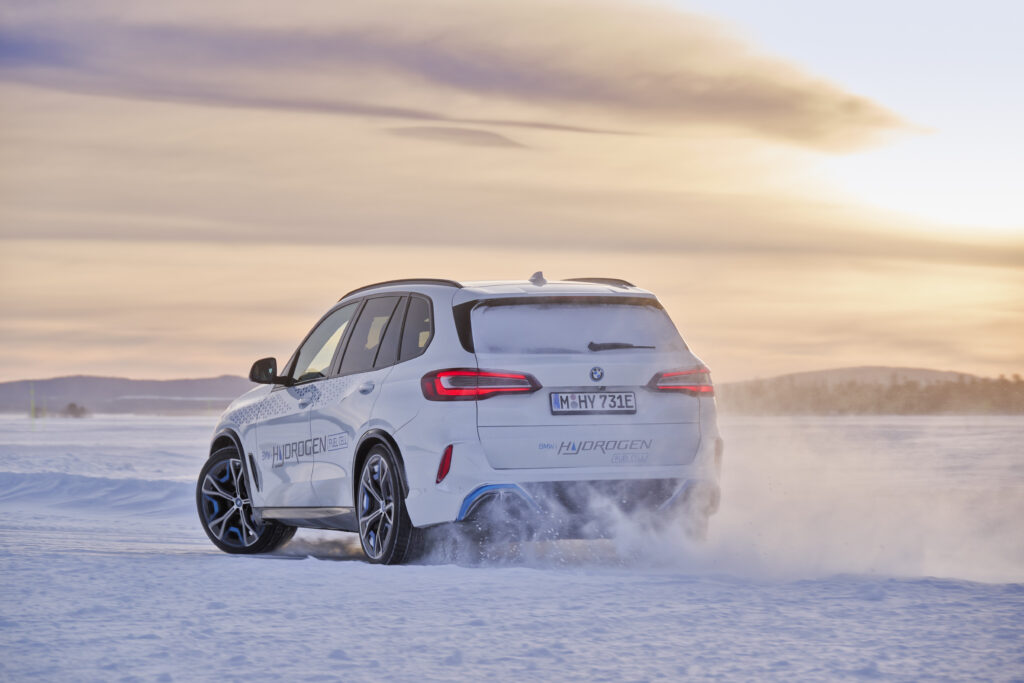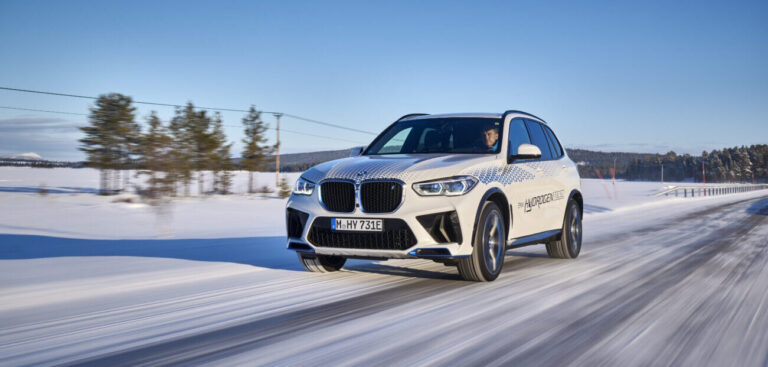Though much of the public’s gaze is drawn to the swathe of battery electric vehicles currently hitting the market, major manufacturers, including BMW, are still pressing ahead with fuel cell vehicle development.
In the case of the Bavarian marque, it has recently conducted winter testing of its iX5 Hydrogen at its testing center in Arjeplog, northern Sweden. According to the manufacturer, integrated functional testing and validation of the fuel cell system, hydrogen tanks, battery and central vehicle control unit confirmed the fuel cell driveline is capable of operating normally in sub-zero temperatures.
The company will produce a small series of the model later in the year and has also reiterated its commitment to helping expand the network of hydrogen fueling stations.
“The winter testing under extreme conditions clearly shows that the BMW iX5 Hydrogen can also deliver full performance in temperatures of -20°C and therefore represents a viable alternative to a vehicle powered by a battery-electric drive system,” said Frank Weber, member of the board of management of BMW, Development. “For us to be able to offer our customers a fuel cell drive system as an attractive sustainable mobility solution, a sufficiently extensive hydrogen infrastructure also needs to be in place.”
The IX5 Hydrogen stores its fuel in two 700-bar tanks made from carbon-fiber-reinforced plastic (CFRP). The fuel cell has an output of 125kW which is coupled with a buffer battery which can also be used to store energy recovered under breaking. The total system output is 275kW.



